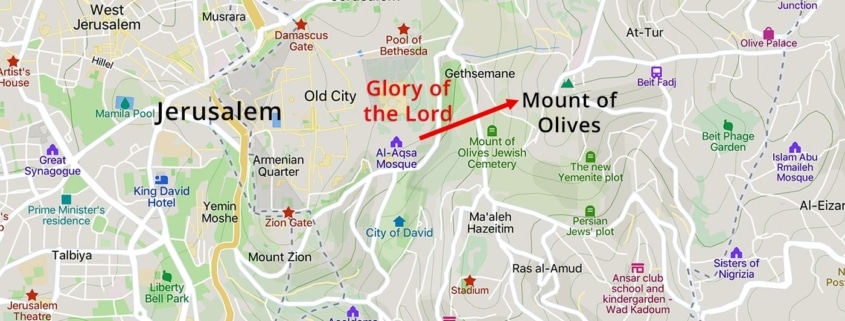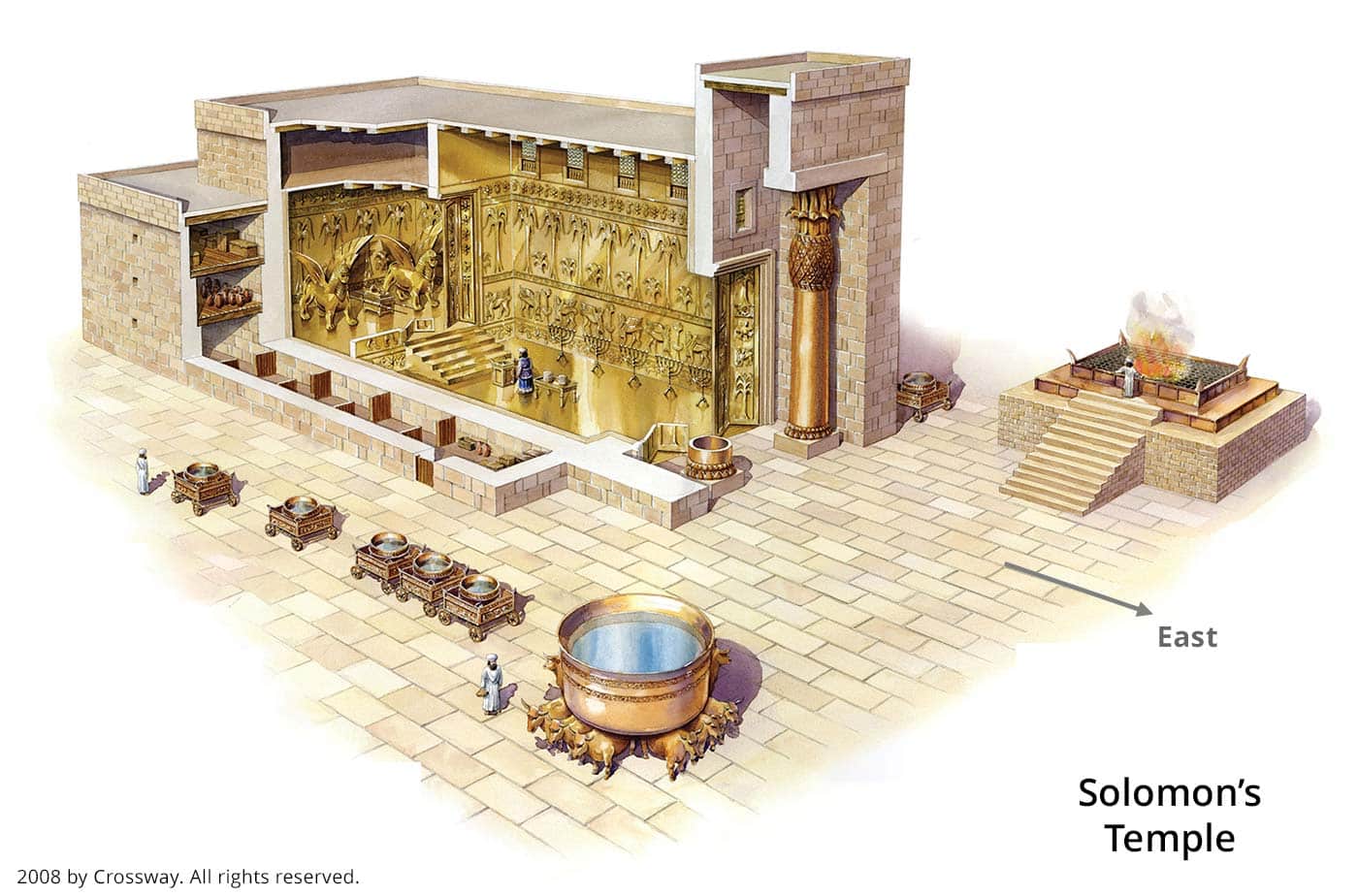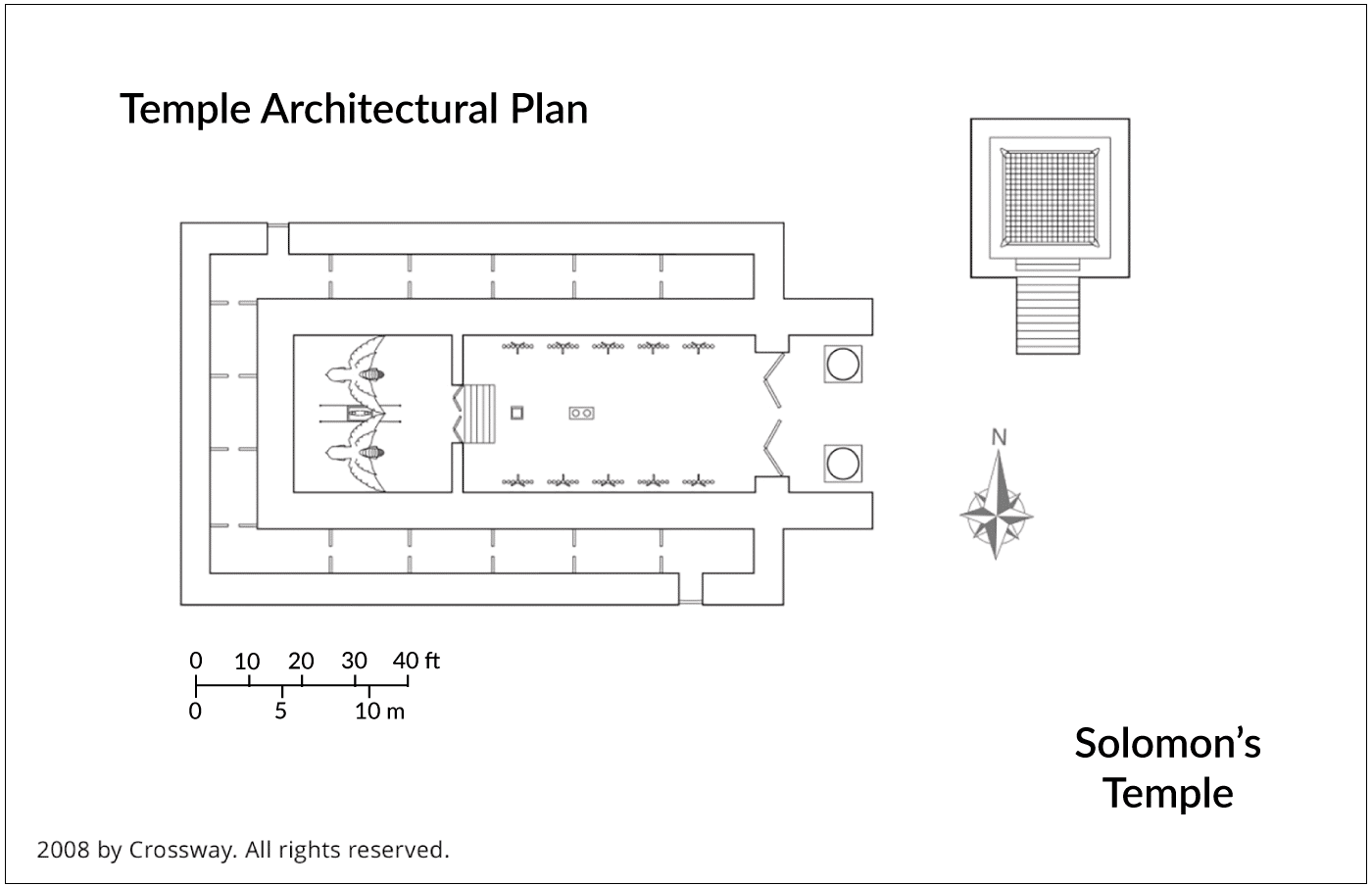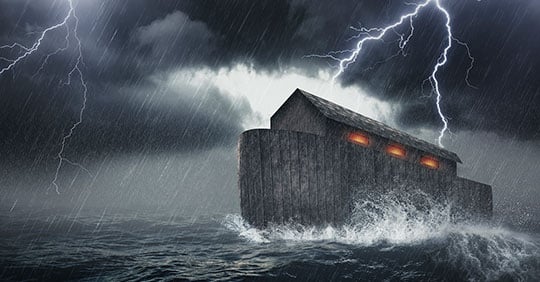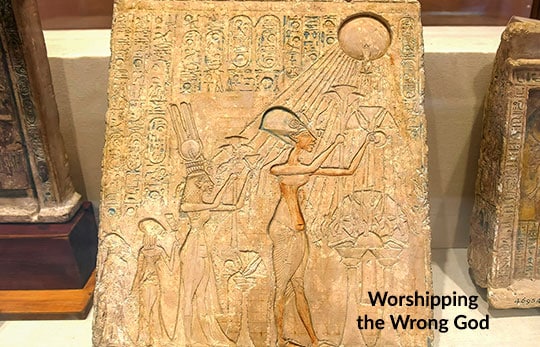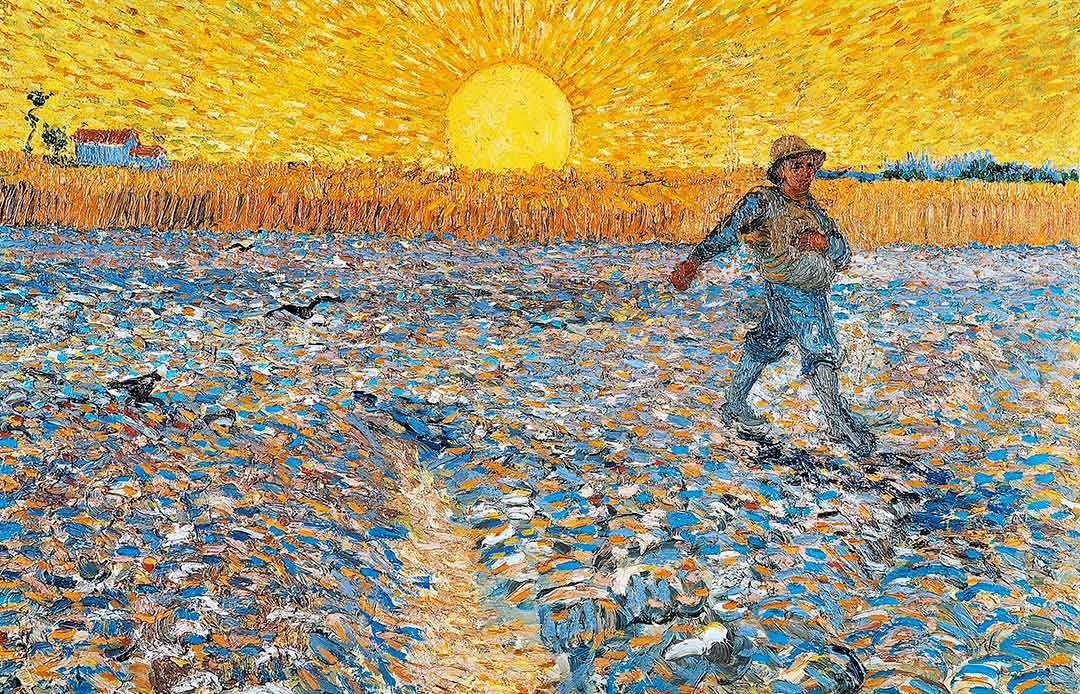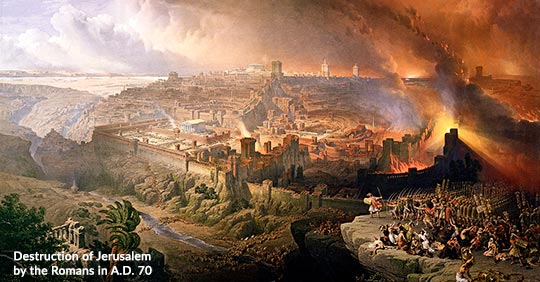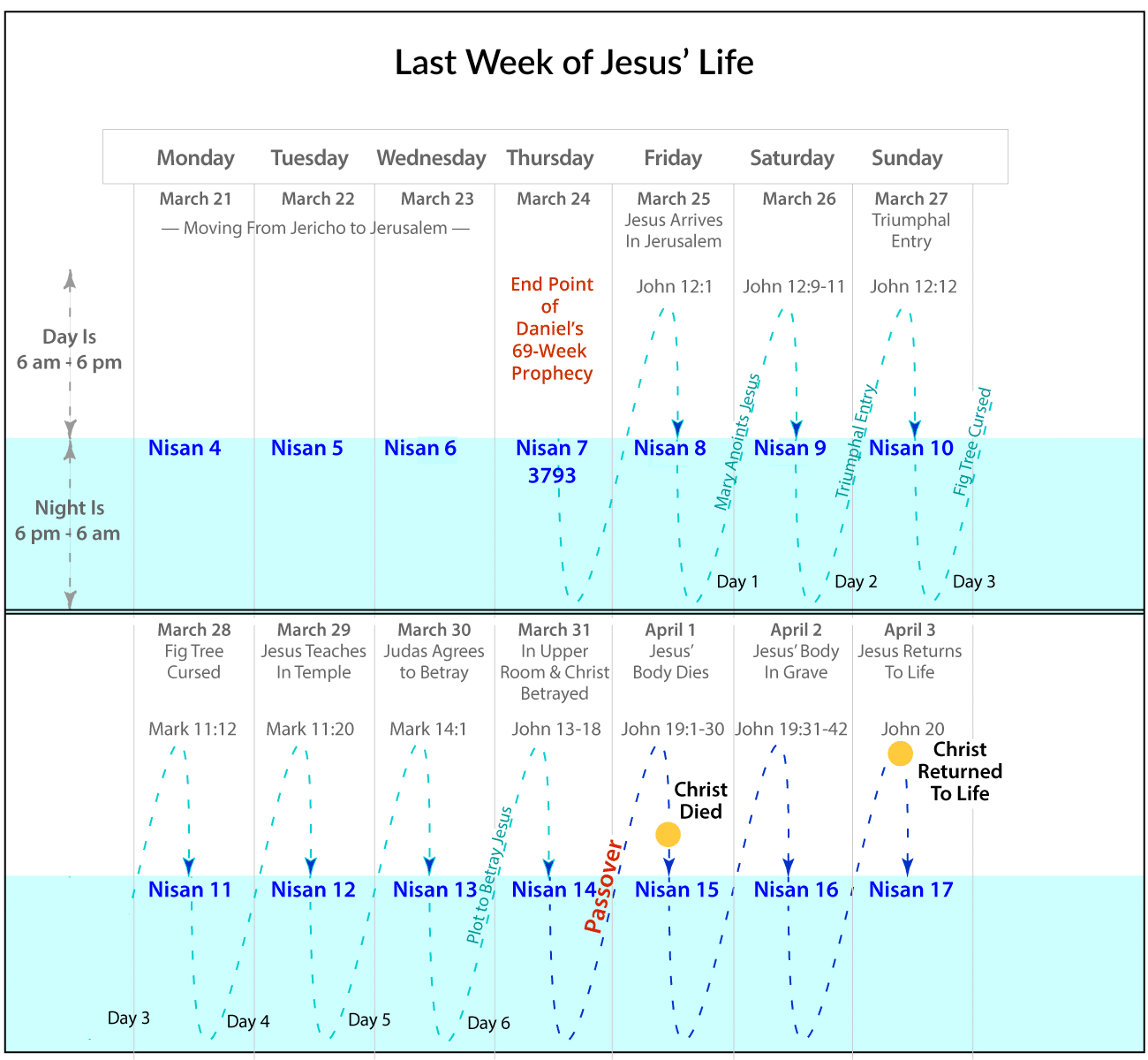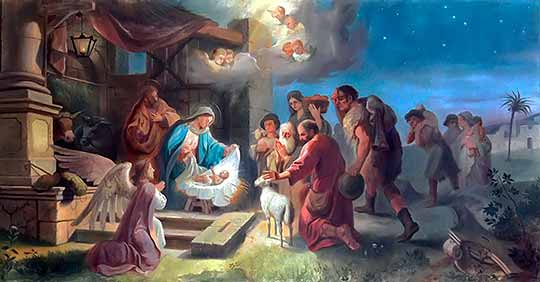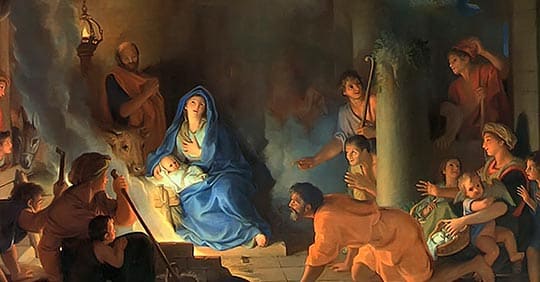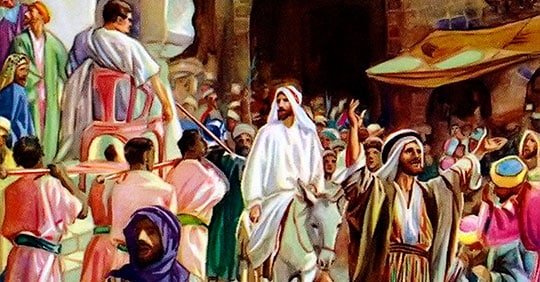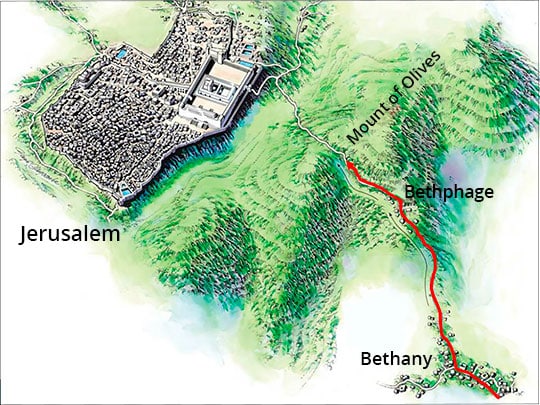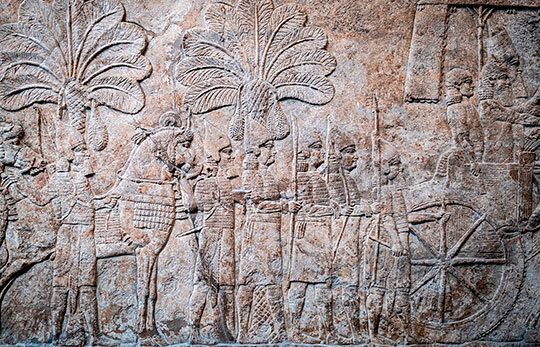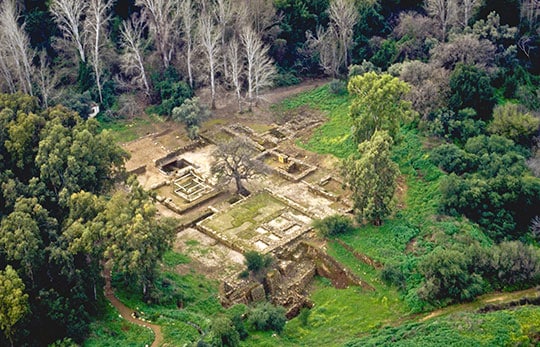The Glory of the Lord Departs From The Jerusalem
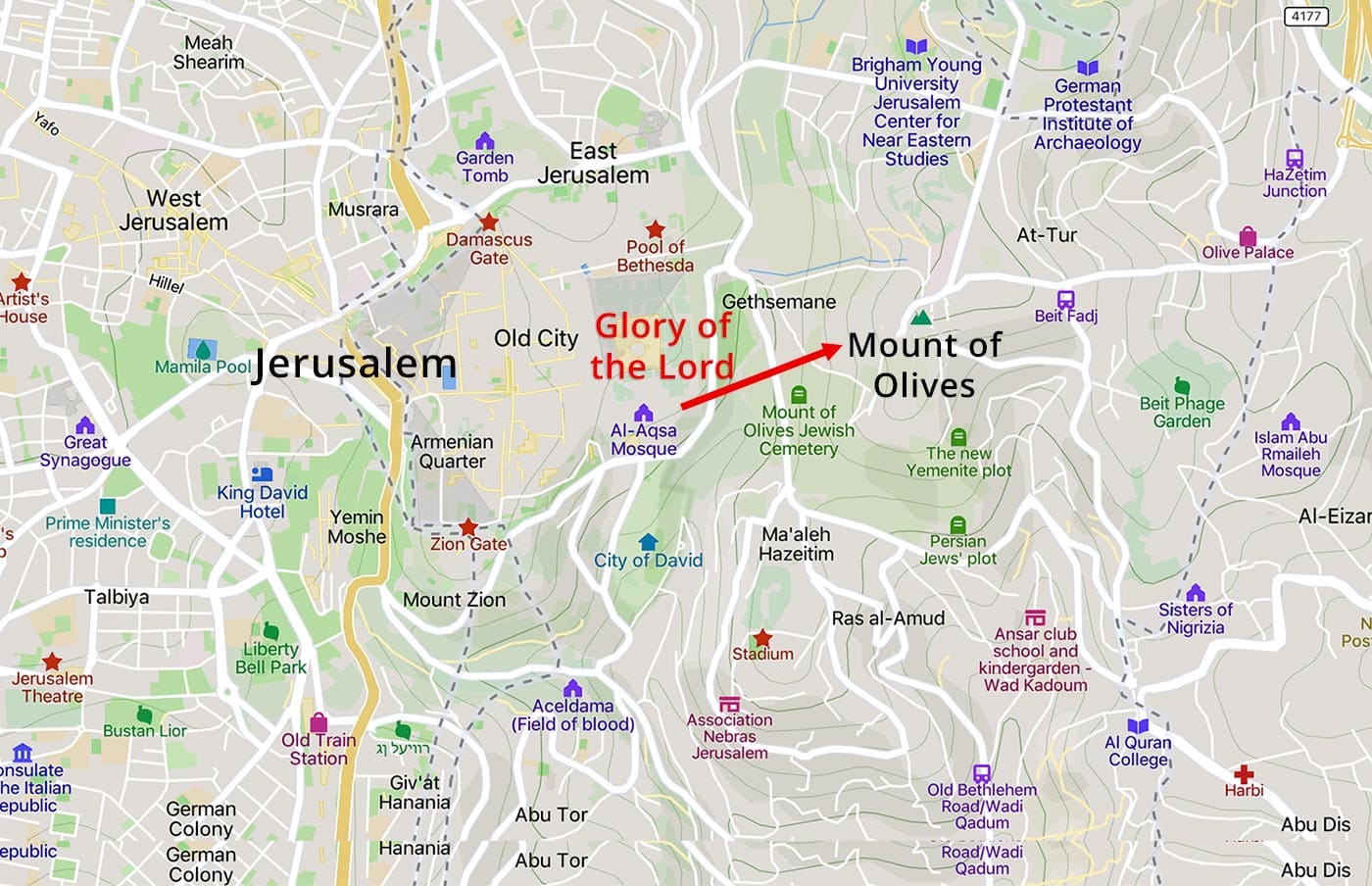
As we have already discovered, this second vision is primarily about the desecration of the temple in Jerusalem. Chapter 8 revealed that the Israelites were worshiping an unbelievable number of idols or false gods and goddesses and committing horrible sins. Yahweh called these sins abominations. They were sacrificing their children and engaging in gross sins, including a wide range of sexual sins. In this study we will discover why this occurred.
In chapter 9 Yahweh prophesied that His execution team would kill the wicked but protect the remnant or the righteous. He did this by having one of the angels of the execution team put a mark on the foreheads of the righteous. The executioner-angels would not kill those with the mark. In chapter 10 as the prophet continued looking into the vision, he saw the glory of the Lord leave the holy of holies and move from the front of the temple to the east gate. Then in the first part of chapter 11, the prophet was told to prophesy that the wicked in Jerusalem would be slaughtered. When the Babylonian army defeated the wicked. that would prove Yahweh had spoken.
We have also discovered that there are three themes woven through this vision. The first theme is the certainty of judgment on Jerusalem and Judah. The second theme is the departure of the glory of the Lord. The third theme is Yahweh’s care of the remnant. The last two themes reach a climax in our study.
Prophecy Is Validated
This study has four sections. The first section in verse 13 is titled, “Prophecy is Validated.” The second section is “Prophecy About the Remnant” in verses 14-20, “Prophecy About the Wicked” in verse 21, and “Prophecy Begins” in verses 22-23. The conclusion is verses 24-25.
Verse 13 begins our study. It says,
Now it came about as I prophesied, that Pelatiah son of Benaiah died. Then I fell on my face and cried out with a loud voice and said, “Alas, Lord GOD! Will You bring the remnant of Israel to a complete end?” Ezekiel 11:13 (NASB)
The man Pelatiah appeared in our last study in Ezekiel 11:1-2. Verse 1 tells us that Jaazaniah and Pelatiah are leaders of the people in Israel. That would seem to be a positive, but verse 2 says they devised sin and gave evil advice. That is a polite way of saying they planned how to commit a variety of sins. As a result, they were not wise. Proverbs 10:23 gives us the principle that the wicked enjoy sin like a sport. They just love sinning!
Doing wickedness is like sport to a fool,
And so is wisdom to a man of understanding.
Proverbs 10:23 (NASB)
Isaiah 30:1 captures the same idea when Isaiah prophesied
“Woe to the rebellious children,” declares the LORD,
Who execute a plan, but not Mine,
And make an alliance, but not of My Spirit,
In order to add sin to sin.
Isaiah 30:1 (NASB)
That helps us understand that Jaazaniah and Pelatiah were not righteous men. They ignored Yahweh’s messages that were given through His prophets. They told the people that what Yahweh said would not happen. The land of Palestine was their possession and they would never ultimately be defeated. They ignored Yahweh’s warnings. Today, wicked people still ignore God’s message as given in the Scripture. They laugh at it. Many leaders today encourage the wicked that their sins are okay. Things are not much different today in our nation.
Then in Ezekiel 11:7-11, the prophet prophesied that they would be defeated and killed, and they were. That occurred in 586 B.C. when the Babylonian army invaded a third time, defeated them, destroyed the city of Jerusalem and the temple, and deported some Israelites to Babylon. Then in verse 12, Ezekiel continued prophesying when he said,
“Thus you will know that I am the LORD; for you have not walked in My statutes nor have you executed My ordinances, but have acted according to the ordinances of the nations around you.”’” Ezekiel 11:12 (NASB)
Now we are told in verse 13 that Pelatiah died immediately when the prophecy ended. That was a shocking surprise. His death validated or proved the prophecy was true. Imagine giving a group of people a warning from God, only to see one of their leaders immediately die when you finish.
The rest of the verse describes Ezekiel’s response.
Then I fell on my face and cried out with a loud voice and said, “Alas, Lord GOD! Will You bring the remnant of Israel to a complete end?” Ezekiel 11:13b (NASB)
We are told Ezekiel fell down on his face and cried to the Lord. It was such a shocking surprise to see Pelatiah die that he panicked. He thought all of the Israelites in Jerusalem were going to die. Notice that in Ezekiel 9:8 that he fell on his face when he saw the six executioners in this vision kill so many people that he thought he was the only one left. This reveals the Babylonian army killed a massive number of people. When Pelatiah died, the prophecy was validated.
Prophecy About the Remnant
The next section is the prophecy about the remnant. Verses 14-15 focuses on the remnant now.
Then the word of the LORD came to me, saying, Son of man, your brothers, your relatives, your fellow exiles and the whole house of Israel, all of them, are those to whom the inhabitants of Jerusalem have said, ‘Go far from the LORD; this land has been given us as a possession.’” Ezekiel 11:14-15 (NASB)
When Yahweh said, “Your brothers, your relatives, your fellow exiles and the whole house of Israel, all of them” we must remember that Ezekiel had been taken captive earlier and was living now in Babylon. Why do we know that? Ezekiel 1:1 told us the prophet was living with the exiles in Babylon, and verses 24-25 of this chapter also say that. That is why Yahweh said, “your fellow exiles.” This means Yahweh was telling the prophet that the exiles are the remnant, and they are His new family. Jeremiah 52:28–30 tells us that the number of Israelites taken captive to Babylon from 605 B.C. to 582 B.C. was only 4,600. That would have been a very small number. The remnant was very small. Apparently, millions of Israelites had been killed in all three Babylonian invasions.
The last part of verse 15 refers to those who remained in Jerusalem. They are the ones who commanded the citizens, “Go far from the LORD; this land has been given us as a possession.” This reveals a very important but sad point. They believed the remnant were the evil people. Somehow they believed that Yahweh loved them and not the remnant. They believed the land would always belong to them. Even though Yahweh warned them to stop sinning and repent, they believed they would not be punished. They did not understand the remnant were the righteous ones. So, they commanded them to “Go far from Yahweh.” They believed that Yahweh was a geographical God. He operated in Jerusalem. So, when the remnant were taken to Babylon, they were far away from Yahweh. It is sad that even today many wicked people think that God loves them and how they live their life is not important.
Verse 16,
“Therefore say, ‘Thus says the Lord GOD, “Though I had removed them far away among the nations and though I had scattered them among the countries, yet I was a sanctuary for them a little while in the countries where they had gone.”’” Ezekiel 11:16 (NASB)
This verse helps us understand the previous verse. In this verse Yahweh is speaking about the remnant. He says that He had scattered them to other nations. Yet, He said that He would be a sanctuary “for them a little while in the countries where they had gone.” That is, He protected them by scattering them. The Hebrew word for sanctuary, miqdas, is also translated as “temple” or a “sacred thing.” Most of the time it is used to refer to the tabernacle and the holy place that Moses built. That reveals that even though the city of Jerusalem and the temple would be destroyed, Yahweh would be like a tabernacle to the remnant. Yahweh would not forsake them. In fact, He would protect and care for them.
When Yahweh said that He would do this for “a little while,” He referred to the seventy years of captivity in Babylon that was prophesied in Jeremiah 25:8-12 and is mentioned in Daniel 9:1-3. The “little while” referred to the seventy-year exile. That is, He would be a like a temple for their seventy years of captivity. That was the near-term prophecy.
Verses 17-20 now jumps into the distant future. It is a future prophecy. Notice that Yahweh says five times “I will” in this passage. He describes what He would do for the remnant. Verse 17 gives us three of them.
“Therefore say, ‘Thus says the Lord GOD, “I will gather you from the peoples and assemble you out of the countries among which you have been scattered, and I will give you the land of Israel.”’ Ezekiel 11:17 (NASB)
The first “I will” Yahweh makes to the remnant is, “I will gather you from the peoples.” That is, He would gather them from all of the countries to which He had scattered them. The second statement is that He would assemble them “out of the countries.” Some people have claimed that ten tribes of Israel have been lost. But they are not lost to Yahweh. He knows what happened to them and where they are now living. The third one is “I will give you the land of Israel.” So, Yahweh will gather them and put them back in Israel. This prophecy was partially fulfilled when seventy years of captivity was completed. But not all of the captives returned from Babylon to Jerusalem to rebuild the city and temple. Another partial fulfillment occurred in 1948 when Jews returned to the land of Israel. But there are still Jews living all around the world. The real fulfillment of this prophecy will occur in the millennial kingdom when Yahweh will gather the remnant or the believing Israelites and Gentiles into Christ’s earthly, millennial kingdom.
Verses 18-19 give us more information. Notice the next two “I wills.”
When they come there, they will remove all its detestable things and all its abominations from it. And I will give them one heart, and put a new spirit within them. And I will take the heart of stone out of their flesh and give them a heart of flesh. Ezekiel 11:17-19 (NASB)
Yahweh says that on this occasion the remnant will remove all of the detestable things and all its abominations from Israel. There would not be any more false gods and goddesses. Evil and wickedness would not exist in Israel. The very ones the world hates will be the favored ones in Yahweh’s earthly millennial kingdom. Just read Micah 4:1-2. This has not happened. It will only happen in the millennial kingdom.
In verse 19, Yahweh promised, “And I will take the heart of stone out of their flesh and give them a heart of flesh.” That is the fourth “I will.” What is a heart of stone? Zechariah 7:12-14 tells us.
They made their hearts like flint so that they could not hear the law and the words which the LORD of hosts had sent by His Spirit through the former prophets; therefore great wrath came from the LORD of hosts. And just as He called and they would not listen, so they called and I would not listen,” says the LORD of hosts; but I scattered them with a storm wind among all the nations whom they have not known. Zechariah 7:12-14a (NASB)
What is a heart of stone? It is a heart that does not listen and obey the Word of the Lord. There are many people today who are like that. They are actually wicked people. Some who claim to be believers actually have hearts of stone. They go to church, read their Bible, and listen to gospel music. Some may be leaders in a church, but have a heart of stone. The proof that someone is a believer is not that they love others. Notice that Yahweh focuses on one thing. Do they hear the Word of God and obey it? Also, notice that Zechariah 7:12-14a described the Israelites in our study. Yahweh said because they did not listen to Him, He did not listen to them! That occurred after they refused to repent of their sins. So, He scattered them. Psalms 66:18 reveals that Yahweh does not listen to the unrepentant or answer their prayers.
The fifth “I will” is, “I will take the heart of stone out of their flesh and give them a heart of flesh.” This refers to a radical transformation of the heart. No psychologists or counselors can fix a cold heart but the Holy Spirit can. So, this is a promise of a radical change that comes from the indwelling Holy Spirit. We refer to this promise as the new covenant. It is mentioned again later in Ezekiel 36:24-28. It is also referred to in Jeremiah 31:31-33.
Behold, days are coming,” declares the LORD, “when I will make a new covenant with the house of Israel and with the house of Judah, not like the covenant which I made with their fathers in the day I took them by the hand to bring them out of the land of Egypt, My covenant which they broke, although I was a husband to them,” declares the LORD. But this is the covenant which I will make with the house of Israel after those days,” declares the LORD, “I will put My law within them and on their heart I will write it; and I will be their God, and they shall be My people. Jeremiah 31:31-34 (NASB)
Obviously, this prophecy has not occurred yet, but it is coming! Verse 31 refers to the new covenant. So, Ezekiel 11:18 is referring to the new covenant. Also, Joel 2:28 reveals the new covenant was partially fulfilled after Christ’s death and resurrection.
Then Ezekiel 11:20 explains why Yahweh will give the remnant a heart of flesh. He says,
That they may walk in My statutes and keep My ordinances and do them. Then they will be My people, and I shall be their God. Ezekiel 11:20 (NASB)
What is the purpose of the new heart? A new heart changes a person’s desires. He or she will listen to Scripture and desire to obey Yahweh. Outward obedience does not result in a heart of flesh for even a stony heart can put on a good show! Even a wicked person can fake being good for a short period of time.
Prophecy About the Wicked
Then Yahweh reaches the “punch line.”
But as for those whose hearts go after their detestable things and abominations, I will bring their conduct down on their heads,” declares the Lord GOD. Ezekiel 11:21 (NASB)
Now Yahweh compares a new heart to a cold heart. The hearts of the wicked go after “detestable things and abominations.” So, they will be punished according to their behavior. The detestable things refer to not worshiping the true God, and abominations refers to sins. He is referring to people who are like the two leaders Jaazaniah and Pelatiah who did not worship the true God and enjoyed sin. They are examples of men who had a heart of stone.
Notice that Yahweh keeps referring to the principle that what we sow, we reap (Galatians 6:7). He said, “I will bring their conduct down on their heads.” That is true for the wicked and the righteous. The wicked will be severely punished because Yahweh repeatedly warns them, but they refuse to repent.
So, Yahweh has revealed how he deals with the wicked and the righteous. He rescued righteous Noah and his family before He destroyed the wicked world. He rescued righteous Lot and his family before He destroyed evil Sodom and Gomorrah. He rescued the Israelites in Egypt from the last plague but not the Egyptians. The Lord rescued 4,600+ righteous Israelites before He destroyed the wicked people, the city of Jerusalem, and the temple. This reveals God’s care and love for the saints. So, I believe that Scripture teaches that God will rapture the church from the world before the tribulation begins.
Prophecy Begins
Verses 22-23 is the first partial fulfillment of the prophecy.
Then the cherubim lifted up their wings with the wheels beside them, and the glory of the God of Israel hovered over them. The glory of the LORD went up from the midst of the city and stood over the mountain which is east of the city. Ezekiel 11:22-23 (NASB)
The themes about the punishment of the wicked and the protection of the remnant have ended. These two verses are about the theme of the glory of the Lord. We are told the glory of the Lord left the city of Jerusalem and stood over the mountain east of the city. That would be the Mount of Olives. It is northeast of the city. The glory of the Lord moved from the Holy of Holies to the first curtain of the temple, then to the east gate in front of the entrance to the temple, and to the Mount of Olives. It then returned to heaven. This is a sad event. The glory of the Lord departed. Ichabod! The Hebrew word ichabod means “the glory has departed” (1 Samuel 4:21).
We will discover later in Ezekiel 43:1-5 that the glory of the Lord will return to the temple during the millennial kingdom. Verse 2 of that passage says the glory of the Lord will come from the east. Then verse 4 says the glory of the Lord came to the temple from the east gate, and verse 5 says the glory of the Lord filled the temple. That is, the new temple in the millennial kingdom.
There is another important pattern for us to see. First, remember that after the tabernacle was built, the glory of the Lord was visible to the Israelites when it was present in the Holy of Holies. Later in Psalm 26:8, King David told us that he could see the glory of the Lord in the temple. Now we discover the glory of the Lord had remained with the Israelites from the times of the desert tabernacle until the invasion by the Babylonian army in 588-586 B.C. Then it departed. But the glory of the Lord will eventually return. It will return to Jerusalem at the beginning of the millennial kingdom when Christ reigns as the Messiah. Revelation 21:3-4 tells us that in the eternal heaven, Yahweh will continue dwelling with the saints. Also, Revelation 21:22-23 says that the glory of God will continue to be visible to all of the saints. That will last for eternity. The message is that God wants to be with His saints. They are the ones with new hearts.
Now why did the glory of the Lord depart from the temple? In Deuteronomy 31:14-18 Yahweh told Moses that Israel would eventually forsake Him. When that occurred, He would forsake them. He would hide His face from them because of their evil and chasing after other gods. As Yahweh had prophesied, Israel did forsake the Lord. He then left them. But He did not leave the remnant for He remained with them as a temple. In the millennial kingdom, He will be present with all of the immortal saints who descend with Him from heaven at the second coming, and with the mortal saints who survived the tribulation.
Conclusion
Verses 24-25 conclude the second vision. We are told that the prophet told the exiles, the remnant, all that the Lord had revealed.
And the Spirit lifted me up and brought me in a vision by the Spirit of God to the exiles in Chaldea. So the vision that I had seen left me. Then I told the exiles all the things that the LORD had shown me. Ezekiel 11:24-25 (NASB)
Our study should be an encouragement to every believer. God has revealed that He does not forsake His remnant, His saints. We have discovered the saints listen to God and obey Him. They have hearts of flesh not of stone. A remnant of God’s people will always exist and some day we will live in the millennial kingdom with Yahweh. We will see His glory for eternity and fellowship Him with other perfectly holy saints in our glorious heaven.
